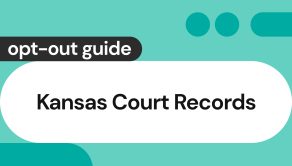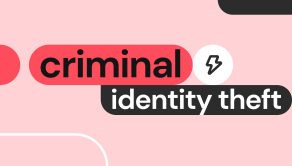How do I find out if someone is using my Social Security number and how do I stop them from using It?

“How can I stop someone from using my social security number?” and “How do I find out if someone is, in fact, using it?” We’ve heard these questions from a lot of our users. Because Onerep provides privacy protection services by removing personal info from the web, many of our users find us after run-ins with SSN fraud and other types of identity theft.
Like it or not, information transparency can make us vulnerable when our public records are published for the world to see. Personal details exposed by people-search sites can be easily exploited to access even more sensitive information, which can be used to commit more serious crimes.
Unfortunately, most people won’t know that their SSN has been compromised until it’s far too late. That’s why we’ve made this checklist for knowing when someone is using your Social Security number. Hopefully, by following these steps, you can stop SSN fraud before it gets any worse.
The SSN fraud checklist: how do I find out if someone is using my Social Security number and how do I stop them from using It?
1. Check your bank for unauthorized transactions. Look through your bank statements for strange transactions or subscriptions. If you find inexplicable transactions, someone may have compromised your bank account or accessed it using your stolen Social Security number. The Social Service Association (SSA) indicates that this could be a sign of SSN fraud.
a) Are there strange purchases made on your account?
b) Are there small “test charges” made on your debit or credit cards?
c) Are you getting digital bank account login notifications for suspicious activity?
2. Check for signs in your credit. One of the most common ways to spot SSN fraud is by checking your credit report. If this yields evidence of unauthorized accounts being opened in your name, the SSA says you may be a victim of an SSN scam.
a) Is there an account listed in your report that you didn’t create?
b) Are you getting calls from creditors regarding accounts that aren’t yours?
3. Check for tax-related fraud. If you answer yes to any of these tax-related questions and know that you did not make any of these changes yourself, then you should take your SSN scam investigation very seriously.
a) Have you received an unrequested tax transcript?
b) Has more than one tax return been filed for you?
c) Do you owe additional tax or have collection actions been taken against you?
d) Has the IRS indicated that you received more wages than you actually did?
e) Have your state or federal benefits been reduced or canceled because of an income change?
4. Watch for extra signs. While not direct signs of SSN fraud, the OIG warns that the following instances could suggest malicious activity.
a) Has your employer mentioned problems with your SSN while filing paperwork and taxes?
b) Are you getting two-factor authentication requests that you didn’t submit?
c) Are you getting emails about login attempts or password changes that you didn’t request?
d) Have you stopped receiving bills or other correspondence in the mail?
e) Have you begun receiving bills for products or services that aren’t yours?
5. Report SSN fraud. If all signs are clear and you have no doubt that your SSN is being compromised, do the following:
a) Report fraud to the Office of Inspector General’s SSN fraud report page.
b) Visit FTC’s platform identitytheft.gov to report id theft and get a recovery plan.
c) Contact IRS if you think you may have tax issues due to your SSN misuse.
d) File an online complaint with the Internet Crime Complaint Center (IC3).
6. Place fraud alert. Contact either of the three credit reporting agencies (CRAs). This will not cancel your SSN misuse but will notify the government institutions and the CRAs.
| Experian | TransUnion | Equifax |
|---|---|---|
| www.experian.com | www.transunion.com | www.equifax.com |
| P.O. Box 4500 Allen, TX 75013 | P.O. Box 2000 Chester, PA 19016-2000 | P.O. Box 105069 Atlanta, GA 30348-5069 |
| 1-888-397-3742 | 1-800-916-8800 | 1-888-378-4329 |
Normally, you can only spot an SSN scam after the perpetrator begins committing crimes with your personal information. If you see any of these breadcrumbs, follow the trail and stop it before it gets any worse!
Make it harder for thieves to steal your SSN
If you see suspicious activity and believe that your SSN has been stolen, read our comprehensive guide to Social Security scams. If it looks like your SSN hasn’t been misused, then we suggest you take this time to make sure it’s safe. You can start by removing your public records (some of which can contain your SSN) from people-search sites. Onerep is here to help. Our tool removes you from 232 people-search engines automatically. Deleting your unauthorized listings from these websites will keep you off of the radar for a lot of unsavory characters, so you can live your life without fear that your identity will be stolen.





Mark comes from a strong background in the identity theft protection and consumer credit world, having spent 4 years at Experian, including working on FreeCreditReport and ProtectMyID. He is frequently featured on various media outlets, including MarketWatch, Yahoo News, WTVC, CBS News, and others.